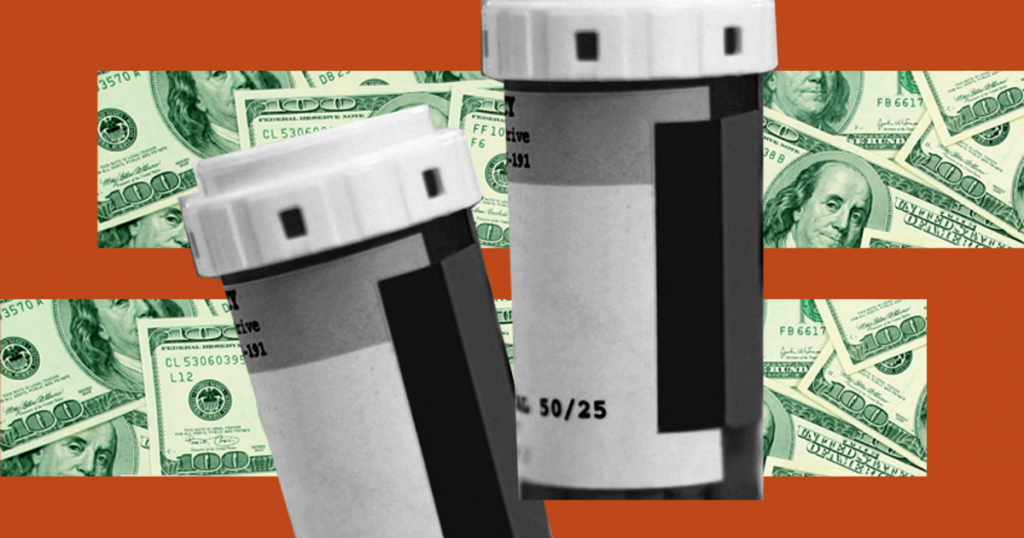The Centers for Medicare and Medicaid Services’s potential response to a Supreme Court decision that invalidated cuts to 340B payments spotlights the divide between providers that participate in the drug-discount program and those that don’t.
While the informal policy proposal drew cheers from 340B hospitals for reversing payment cuts, some who don’t use the program described the agency’s road map as “irresponsible” and argue CMS would be justified paying even less for 340B drugs.
Both groups are also watching closely to see how CMS decides to pay back providers that missed out on 340B reimbursements between 2018 and 2022 when the policy was in place.
“It’s hard to read all the tea leaves, but it does seem like CMS is moving towards just consistency among different hospitals,” said Anil Shankar, a partner at law firm Foley & Lardner.
Safety-net providers can access lower-cost prescription drugs through the federal 340B program. In 2020, about 50,000 providers participating in 340B saved a collective $38 billion on drugs, according to data from the University of Southern California.
CMS has paid less for outpatient drugs acquired through the 340B program than for other drugs since 2018. According to the agency, lower payments were justified because it reimbursed more for the medicines than hospitals paid to acquire them.
Following the Supreme Court’s ruling, CMS announced it would revert to reimbursing 340B drugs at the same rates as non-340B drugs. The court decided the lower payments were illegal because CMS didn’t survey providers before modifying its reimbursement policy.
The high court issued its ruling June 15, exactly one month before CMS released the proposed hospital outpatient prospective payment system rule for 2023. Because of the short notice, the draft regulation doesn’t reflect the court decision, but the agency will incorporate into the final rule.
CMS’s proposed path forward provoked ire from the Community Oncology Alliance, which represents independent practices that aren’t eligible for 340B. “It’s totally illogical, and literally irresponsible and incompetent,” Executive Director Ted Okon said.
CMS should use data from a 2020 study develop future policy, Okon said. The agency surveyed safety-net hospitals’ drug acquisition costs after the American Hospital Association sued over the 340B cuts. CMS found that 340B reimbursements could be decreased by another roughly 6% beyond the lower rate the agency had already set.
But the survey came out in April 2020, during the intense early weeks of the COVID-19 pandemic. Only 7% of covered entities provided detailed responses, and 38% didn’t respond at all, according to law firm Mintz.
CMS proposed implementing the lower rate in 2021 but never finalized the policy. The agency isn’t using the 2020 survey data to set rates for next year, either. The proposed 2023 outpatient rule mentions the results but does not state why CMS is applying them to its rulemaking.
Disregarding the survey data will cause overpayments to hospitals, making it even more difficult for independent practices to succeed financially, Okon said.
Furthermore, scrapping the reimbursement cuts will cost CMS approximately $1.96 billion more for outpatient drugs. Because the payment system must have a neutral impact on the federal budget, that money would have to come from other outpatient payment sources, according to the agency. CMS anticipates it would have to decrease the conversion factor from $84.177 to $83.279.
340B participants see the plan as a step in the right direction. Providers that accept the discounts say the saved money pays for safety-net services that wouldn’t otherwise be possible.
340B Health, a coalition of hospitals and health systems, sought a midyear update to 2022 reimbursement rates to eliminate the current cuts, but is pleased CMS wants to reverse future reductions, CEO Maureen Testoni said.
The American Hospital Association and America’s Essential Hospitals cheered the decision as well.
“This is an important step toward reversing the damage caused by deep cuts to payments for outpatient drugs acquired through the 340B Drug Pricing Program—cuts the U.S. Supreme Court unanimously found unlawful,” Beth Feldpush, America’s Essential Hospitals’ senior vice president of policy and advocacy, said in a statement on the proposed outpatient rule.
Providers on both sides of this dispute eagerly await news on how CMS will remedy the reimbursement cuts from previous years, which wasn’t addressed in the draft outpatient regulation. Instead. the agency requested comments on how to resolve the cuts.
The Supreme Court only invalidated the payment scheme from 2018 and 2019, prior to CMS’s survey, but the agency indicated it may also remedy cuts made between 2018 and 2022.
The Federation of American Hospitals, which represents for-profit hospitals that aren’t eligible for 340B, hopes CMS will avoid harming other hospitals by setting aside budget neutrality when it devises a solution, said Chip Kahn, the federation’s president and CEO. When CMS first decreased 340B reimbursement in 2018, it spread the savings across all hospitals.
“We think it’s very important to not penalize the other hospitals,” Kahn said. “It would be totally unfair.”
CMS could decide to pay 340B providers back for just the years subject to the Supreme Court’s decision, or only to reimburse providers up to the lower rate suggested by the 2020 survey, Shankar said.
Because of the uncertainty, 340B-covered entities should push CMS to quickly make them whole for the lower payments from multiple years, said Mary Canavan, an associate at law firm Polsinelli. That would take the form of lump sums, payments over several years or even higher reimbursements for other services to compensated for the lost 340B money, she said.
“It’s still a little bit of a waiting game to just see what comments are going to get submitted and what CMS will pick on in the final rule,” Canavan said. “That will be equally as interesting as this proposed rule.”
